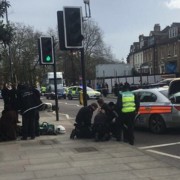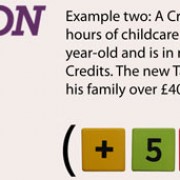Working people have seen pay plummet this year as decreases in average earnings were compounded by rising inflation, with local people in part-time employment particularly hit according to government statistics.
The average income of those in full-time work decreased during 2011 in all of the EastLondonLines boroughs except Hackney.
Provisional results from the ONS survey indicate decreases in median before-tax pay of 0.5 per cent in Tower Hamlets, 0.3 per cent in Lewisham and 1.5 per cent in Croydon respectively. However Hackney residents fared better, seeing an average nominal increase of 3.6 per cent compared with the previous year.
These reductions are much higher when taken alongside an inflation rate of five per cent as measured by the Consumer Price Index, which tracks the rise of prices of consumer goods and services, excluding mortgages.
Factoring the rise in the cost of living, the figures suggest that employees in the four boroughs saw pay cuts in real terms ranging from 1.4 per cent in Hackney and hitting a high of 6.5 per cent in Croydon, compared to an indicative average decrease of 3.6 per cent nationally.
While pay in each borough was above the national average of £500 per week, all lagged behind the London average of £610 per week with the exception of Tower Hamlets – possibly due to high earners in the financial sector based at Canary Wharf.
The reductions in income were far more pronounced among those in part-time roles. In Tower Hamlets, the average pay packet of a person in part-time work was almost a fifth slimmer than the previous year. This figure is made up entirely by women, who constitute the majority of the part-time workforce. No data was available for men in such roles in Tower Hamlets.
During the same period the number of people working part-time soared by 13,000 across London.
Reflecting a national and historical trend, the pay of women locally still lagged behind that of their male counterparts.
But while pay freezes in the public sector and a stagnant national economy account partially for pay cuts, the reason for the local patterns is less clear.
Businesses in the area are taking a ‘pragmatic and realistic approach’ to the labour market according to Daphne Clifton, president of the South-East London Chamber of Commerce, the majority of whose members are small and medium-sized enterprises.
She said: “Our members are keen to take people on but anxious about the red tape involved. While businesses are taking a positive approach the reality is that they will take people on part-time rather than full-time when there is uncertainty.”
Meanwhile trade unions criticised what they see as a squeeze on working people at a time of rising prices and economic hardship.
Richard Munn, Unite organiser for health and third sector workers in South-East London said that the effect of inflation on household budgets was “no longer academic.” He said: “Pay freezes mean that for many of our members the pensions reforms – which would mean them contributing an extra two to three per cent – are simply unaffordable.
“This is having a clear impact. People coming to our meetings are saying that they are a lot worse off now than they were a year ago.”
Local government workers have not had a cost of living pay-rise for three years Vicky Easton, regional manager at Unison said. She added that the treasury’s decision in March to renege on a promise of an extra £250 to the lowest-paid council workers meant that they were “bearing the brunt of the recession”.





